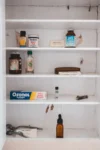So we’ve been writing about living a more organic, natural and sustainable lifestyle at Green Foot Mama for well over a decade now. And we’ve definitely learned a lot as our little ones have grown into bigger ones!
Its easy to forget how much has changed over the past 12 years of living a slower, more purposeful life. Yes, it saved us money. But living more simply and reducing waste not only benefits the planet, it creates more space to enjoy life and the family. Fewer things to worry about equals more peace of mind.
So here is a roundup post for those of you who are just starting the journey to a greener lifestyle:
1. Make your own natural cleaning products
It is easy to get started creating your own non-toxic all-purpose cleaners. You can use simple ingredients like vinegar, baking soda, and essential oils. Use soap nuts instead of laundry detergent.
Adopting green cleaning practices will reduce your family’s exposure to harsh chemicals and make your home healthier for all.
It has the added benefit of cutting down on plastic packaging waste too.
2. Start a small herb or vegetable garden
You would be surprised how little space is needed to grow herbs in pots, or create a compact vegetable garden. This provides fresh, organic produce, in season. And in doing it, you can teach your children about how and where food comes from.
The flavour freshly cut herbs add to your cooking is amazing.
Our daughter hated eggs. I tried sprinkling a small handful of freshly cut parsley on scrambled eggs just before serving and now she is a fan. In fact, she’s the one out with the scissors cutting herbs.
Elevate the taste of simple, healthy meals by using freshly cut rosemary, thyme, parsley and mint grown at home.
3. Create a composting system
When my daughter was a baby, we had no outdoor space for a compost bin. So we bought a bokashi bucket which we kept in the laundry. It smelled less than the nappy bucket, which didn’t actually smell that much. And I used the bokashi liquid as fertiliser for my indoor herbs and patio container garden.
Once we moved to a home with more outdoor space it was very easy to set up a simple backyard compost bin. In fact we bought ours from the local council for a discounted price.
Or you could try a worm garden (vermicomposting) to recycle food scraps.
All these methods reduce waste sent to landfills. The compost generated will enrich your garden soil. And if you don’t have a garden, and cannot find someone who would love to take your compost for their garden for free, you can put it in your green bin and enrich the local council compost instead.
4. Repurpose unused linen
There are a whole bunch of things you can make from old linen.
When your sheets and pillowcases get too worn to use, make simple bags. You can use them to replace disposable plastic produce bags at the grocery store.
In fact you don’t even have to know how to sew. You can use old Tshirts to make no sew shopping bags. I have a friend who is using his favourite old concert Tshirts for this.
5. Make beeswax food wraps
Create reusable food wraps using cotton fabric and beeswax.
I tried two different methods to make beeswax wraps years ago and will never go back. It is a fun and easy craft activity to do with your children. And a low cost, eco-friendly alternative to disposable plastic wrap and aluminum foil.
When your beeswax wraps have outlived their useful lives, simply throw them in the compost and they will continue to work for you and your garden.
6. Reuse glass jars in the kitchen
If I am buying prepackaged goods (instead of buying in bulk) I prefer goods packaged in glass. There are so many uses for glass jars!
You can repurpose them for food in so many ways! And thus avoid any concern about BPAs and chemical leaching.
Large jars are great for dry storage of your bulk purchases and for your own preserves or ferments. I also use them in the freezer for curries, stews and stock. But make sure you leave a decent gap in the top as food expands when it is frozen.
Medium sized jars are useful for daily preps. For example overnight oats or salad in a jar for lunch. Or you can use them to store leftovers in the fridge.
They also make good rustic glasses to serve drinks in when you are hosing lots of people.
I like to use them for gifts – prepping “just add water” style soups and stews for new mamas or people recovering from illness.
Smaller jars are good for storing dried herbs or dehydrated vegetables when you have more than you can use from your garden.
7. Create natural beauty products
Ahem. Obviously this is where Green Foot Mama went from being a blog about being more sustainable to being the home of a range of natural and organic body care balms.
There are so many toxic chemicals in commercial products available to buy. And the skin of our little ones are so delicate. It is easy to make your own body scrubs, face masks, and lip balms using natural and organic ingredients like coconut oil, honey, and essential oils. Here is our simple recipe for natural homemade deodorant from early experiments at Green Foot Mama.
8. Use cloth napkins and towels
Think back to your great grandma’s day. Save some trees by replacing disposable paper products like paper towels, napkins or tissues with washable, re-usable cloth versions.
You can buy them, or make your own from old linen or fabric scraps.
9. Make eco-friendly laundry dryer balls
I personally don’t own a dryer but in some climates they are indispensable.
You can make your own wool dryer balls to reduce drying time and static without using chemical-laden dryer sheets. This saves you time and the cost of electricity.
10. Collect rain for your garden
Why not collect rainwater from your roof to use for watering plants? In a country as dry as Australia there is a lot of attention on the weather. Rainfall in particular. It is not unusual for there to be droughts to last decades.
I happen to live in a rain forest area and collect rain from the roof, which I use in the garden during the dry season. This reduces reliance on treated municipal water. But I also think my garden grows better when I water it with rainwater from the tank, than using the hose.
These DIY projects can help you reduce waste, avoid harmful chemicals, and embrace a more sustainable lifestyle. They also save you money and model valuable skills to your children.
What is your favourite eco-living tip?


